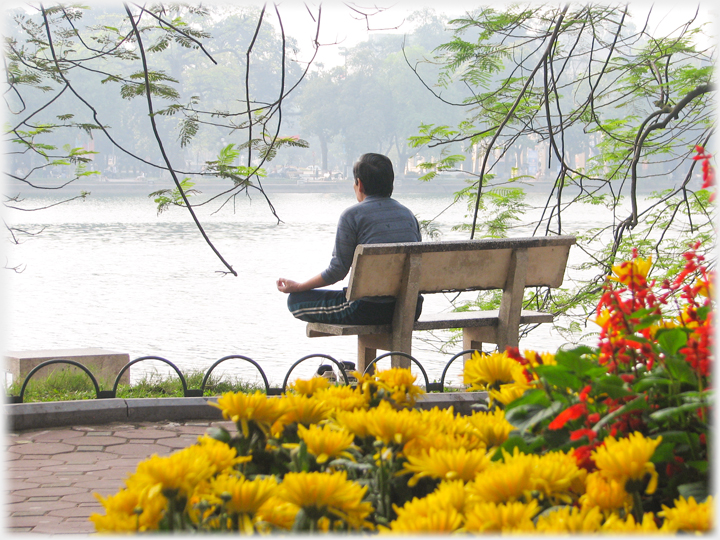
Captured by Thought
Tennyson and Browning are poets, and they think; but they do not feel their thought as immediately as the odour of a rose. A thought to Donne was an experience; it modified his sensibility.
T. S. Eliot (1921)

The distinction between thought and sensation is venerable, largely made so for us by
Hume’s base line
 Presenting dragons as an example of Hume's 'ideas'.
contrast of the strength of sensations with the more shadowy nature of thoughts. Sitting in quiet reflection our monkey minds jump to ever
new delights
Presenting dragons as an example of Hume's 'ideas'.
contrast of the strength of sensations with the more shadowy nature of thoughts. Sitting in quiet reflection our monkey minds jump to ever
new delights
 A page dwelling on the purely linguistic, internal monologue, which is so often mistaken for thinking.
and we turn in contrast to sensations
for rest.
A page dwelling on the purely linguistic, internal monologue, which is so often mistaken for thinking.
and we turn in contrast to sensations
for rest.
 Maybe the internal noise can be converted.
We can treat the air in our nostrils as arising,
we attend,
Maybe the internal noise can be converted.
We can treat the air in our nostrils as arising,
we attend,
 The problem and place of attention in meditation.
and we let it pass; it is much harder to grant thoughts this transitoriness, rather they seem to jump us from behind, pick us up, and sweep us along with them. If Eliot is right,
writers prior
The problem and place of attention in meditation.
and we let it pass; it is much harder to grant thoughts this transitoriness, rather they seem to jump us from behind, pick us up, and sweep us along with them. If Eliot is right,
writers prior
 Another example of the way ontological abstractions have evolved over the recent historical period.
to Hume might treat a rising thought exactly as the
odour
Another example of the way ontological abstractions have evolved over the recent historical period.
to Hume might treat a rising thought exactly as the
odour
 Why do we give differing status to the smell and the sight of a rose?
of a rose, allowing it to strut on the stage of our perceptions; neither entangling nor capturing us.
Why do we give differing status to the smell and the sight of a rose?
of a rose, allowing it to strut on the stage of our perceptions; neither entangling nor capturing us.
The quote is from from Eliot’s review, in the Times Literary Supplement 20 October 1921, of Grierson’s book Metaphysical Lyrics and Poems of the Seventeenth Century. His assertion has led to the theory known as 'Dissociation' in poetry. David Hume in 1739 commences his great work with: "All the perceptions of the human mind resolve themselves into two distinct kinds, which I shall call 'Impressions' and 'Ideas'. The difference betwixt these consists in the degrees of force and liveliness with which they strike upon the mind and make their way into our thoughts or consciousness...under [impressions] I comprehend all our sensations, passions and emotions....By ideas I mean the faint images of these in thinking and reasoning..." (A Treatise of Human Nature, p.1)
The picture was taken beside Hoàn Kiếm Lake in central Hà Nội.
Above hovering on blue introduces a link: click to go, move away to stay.

Saturday 18th May 2019
 ...guide to this site
...guide to this site